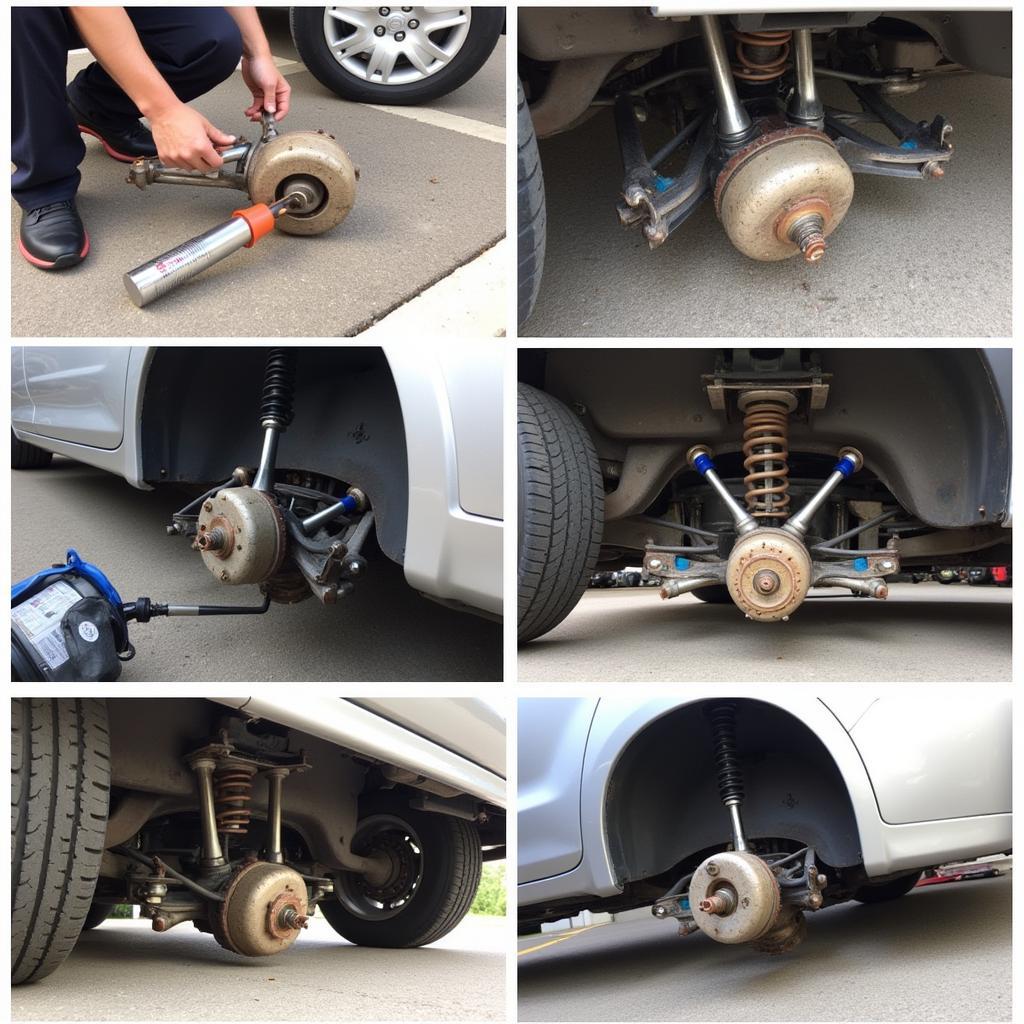Car Fixings are the unsung heroes of your vehicle, holding everything together from the engine to the interior trim. Understanding the various types of car fixings, their applications, and proper maintenance can save you time, money, and frustration down the road. This guide provides valuable insights into the world of car fixings, equipping you with the knowledge to tackle common issues and ensure your vehicle remains in top condition.
Understanding Different Types of Car Fixings
Car fixings come in a wide array of shapes and sizes, each designed for specific applications. From the robust bolts securing your engine to the delicate clips holding interior panels, each type plays a crucial role. Let’s explore some common types:
- Screws: Used extensively throughout the vehicle, screws offer a reliable fastening solution for various components. They come in various head types (Phillips, flathead, Torx) and thread pitches.
- Bolts: Typically larger and stronger than screws, bolts are used for critical connections, often requiring a nut for fastening.
- Rivets: Permanent fasteners ideal for joining thin materials, often found in body panels.
- Clips: Plastic or metal clips provide quick and easy fastening for interior trim and other non-structural components.
- Fasteners: A broad category encompassing various fastening devices, including cable ties, adhesives, and specialized clips.
Common Car Fixing Problems and Solutions
Knowing how to identify and address common car fixing issues can empower you to perform simple repairs yourself, saving you a trip to the mechanic. Here are a few examples:
- Loose Screws and Bolts: Regularly check for loose screws and bolts, especially in areas subject to vibration. Tighten them using the appropriate tools.
- Broken Clips: Broken clips can lead to rattling interior panels. Replace them with matching clips readily available at auto parts stores.
- Stripped Screw Heads: Use a screw extractor or specialized tools to remove stripped screws.
- Rusted Fasteners: Apply penetrating oil to loosen rusted fasteners before attempting removal.
Why Regular Maintenance Matters
Regular maintenance of car fixings is crucial for preventing larger problems down the line. Imagine a loose bolt causing a critical component to fail while driving! Regular inspections and tightening of fasteners can prevent such scenarios.
What are the benefits of regular car fixing maintenance?
Regular maintenance ensures safety, prevents costly repairs, and extends the lifespan of your vehicle’s components. A simple check can prevent major headaches later on.
Car Fixings for Different Vehicle Types
Different vehicle types may require specialized car fixings. For instance, classic cars often utilize unique fasteners that may not be readily available. Understanding these nuances is important for effective maintenance and restoration.
How do car fixings differ between modern and classic cars?
Classic cars often utilize unique fasteners no longer commonly used in modern vehicles. Sourcing these parts requires specialized knowledge and resources.
Child Car Seat Fixings: A Critical Safety Aspect
Child car seat fixings, such as ISOFIX or LATCH systems, are paramount for ensuring your child’s safety. Proper installation and regular checks are crucial.
How to ensure child car seat fixings are secure?
Refer to your car seat and vehicle manuals for proper installation instructions. Ensure a tight fit and regularly inspect the anchors and tethers.
can you make payments car fixings
Conclusion
Car fixings, though seemingly small, play a vital role in your vehicle’s overall integrity and safety. Understanding their different types, common problems, and the importance of regular maintenance can empower you to keep your car in optimal condition. Remember, regular checks and timely repairs can prevent minor issues from escalating into costly problems. For further assistance or inquiries, connect with AutoTipPro at +1 (641) 206-8880 or visit our office at 500 N St Mary’s St, San Antonio, TX 78205, United States. We’re here to help you with all your car fixing needs.





Leave a Reply